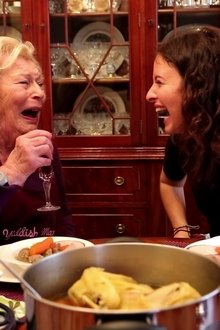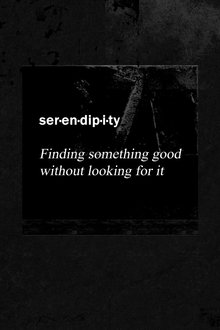Meat-based or vegetarian, with or without beans, potatoes in or out, tomato sauce or real tomatoes added, dried mushrooms or smoked pears, or maybe just mom's borsch? Which variant should be considered "the real thing"? The battles have been lasting for years. That is why Yevhen Klopotenko, a well-known chef, sets out on a journey across Ukraine to uncover the most fascinating borsch recipes and to find the secret ingredients which make this dish unique.
Related Movies

The Organic Life (2013)
Sweat, sun, rain, tears, and green thumbs are all part of the challenge for a young couple attempting to become full-time organic farmers in this illuminating doc.
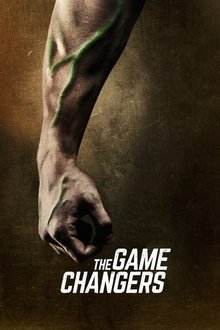
The Game Changers (2019)
From the UFC Octagon in Las Vegas and the anthropology lab at Dartmouth, to a strongman gym in Berlin and the bushlands of Zimbabwe, the world is introduced to elite athletes, special ops soldiers, visionary scientists, cultural icons, and everyday heroes—each on a mission to create a seismic shift in the way we eat and live.
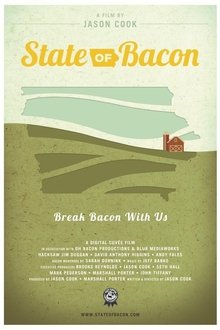
State of Bacon (2014)
State of Bacon tells the kinda real but mostly fake tale of an oddball group of characters leading up to the annual Blue Ribbon Bacon Festival. Bacon-enthusiasts, Governor Branstad, a bacon queen, Hacksaw Jim Duggan, members of PETA, and an envoy of Icelanders are not excluded from this bacon party and during the course of the film become intertwined with the organizers of the festival to show that bacon diplomacy is not dead.
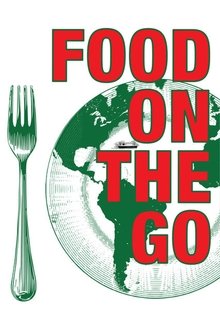
Food on the Go (2017)
The diaspora of millions of Italian emigrants marked a strong nutritional influence of this nation on the American continent. The documentary collects the similarities and differences between the dishes adapted to the American taste and his native Italy.

Mary Berry's Country House at Christmas (2018)
Mary Berry visits Harewood House in Yorkshire as it prepares for Christmas on a grand scale, and demonstrates how to make delicious recipes inspired by festive dishes of the past.
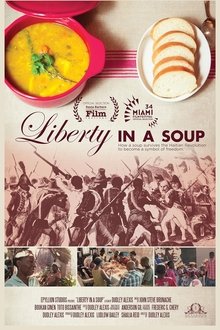
Liberty in a Soup (2015)
Every New Year, and in celebration of their Independence, Haitian families gather together to feast in honor of a line of ancestors that fought for their freedom. The centerpiece of the festivity is the joumou soup—a traditional soup dating back centuries ago. The joumou soup is a concretization of war and victory, oppression and emancipation, and the deeply rooted celebratory traditions of the Haitian culture.
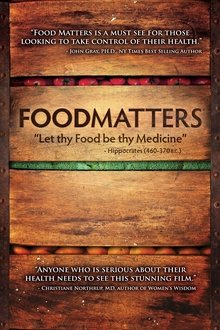
Food Matters (2010)
With nutritionally-depleted foods, chemical additives and our tendency to rely upon pharmaceutical drugs to treat what's wrong with our malnourished bodies, it's no wonder that modern society is getting sicker. Food Matters sets about uncovering the trillion dollar worldwide sickness industry and gives people some scientifically verifiable solutions for curing disease naturally.
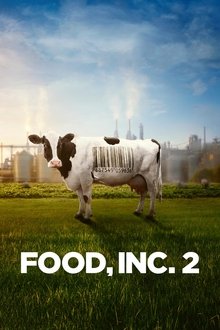
Food, Inc. 2 (2024)
Filmmakers Robert Kenner and Melissa Robledo reunite with investigative authors Michael Pollan and Eric Schlosser to take a fresh look at our efficient yet vulnerable food system.
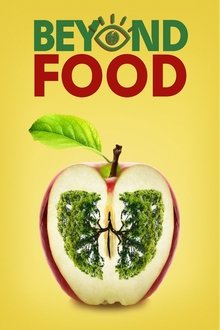
Beyond Food (2017)
Beyond Food explores the ways a group of extraordinary people live amazing lives, eat delicious food while extracting more energy and mental focus from their daily rituals. Biohackers, Paleo, Vegan, Neuroscientists, Athletes, Foragers, Ranchers, Farmers, Gut scientists. Some of our characters are Dave Asprey (Bulletproof Exec), Mariel Hemingway, Laird Hamilton, James Hardt (Biocybernaut Institute Advanced Neurofeedback) Our target audience is everyone who is desiring to learn how to fuel and create an extraordinary life. Our main purpose is to share the lessons from the journey we lived because it changed our lives.

Food for Profit (2024)
The film exposes the links between Agrifood and politics. With a pool of international experts it analyses the many problems related to factory farming: water pollution, migrants exploitation, biodiversity loss and antibiotic resistance.

Strudel Sisters (2016)
Two elderly sisters share the delicate art of making traditional Hungarian strudel and reveal a deeply personal family story about their mother, who taught them everything they know.
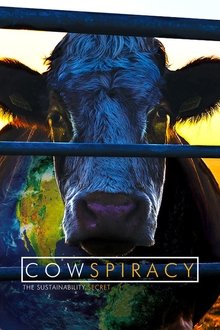
Cowspiracy: The Sustainability Secret (2014)
Follow the shocking, yet humorous, journey of an aspiring environmentalist, as he daringly seeks to find the real solution to the most pressing environmental issues and true path to sustainability.

Breaking Bread (2022)
In Breaking Bread, exotic cuisine and a side of politics are on the menu. Dr. Nof Atamna-Ismaeel - the first Muslim Arab to win Israel's MasterChef - is on a quest to make a social change through food. And so, she founded the A-sham Arabic Food Festival in Haifa. There, pairs of Arab and Jewish chefs collaborate on mouthwatering dishes like kishek (a Syrian yogurt soup), and qatayef (a dessert typically served during Ramadan), as we savor the taste of hope and discover the food of their region free from political and religious boundaries.

Ishq e Qalandar - The Beautiful Sindh (2020)
Ishq e Qalandar - The Beautiful Sindh is a travel film that takes viewers through one of the most ancient civilizations on Earth called Sindh. Shezan Saleem Jo-G takes a journey of self-realization, the discovery of his roots, and building a connection with people and spirituality in Sindh.
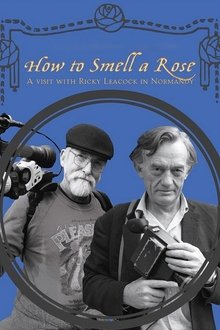
How To Smell A Rose: A Visit with Ricky Leacock at his Farm in Normandy (2014)
In the year 2000, Les Blank, along with co-filmmaker Gina Leibrecht, visited Richard Leacock (1921-2011) at his farm in Normandy, France and recorded conversations with him about his life, his work, and his other passion: cooking! With the flair of a seasoned raconteur, Leacock recounts key moments in his seventy years as a filmmaker and the innovations that he, D.A. Pennebaker, Albert Maysles and others invented that revolutionized documentary filmmaking, and explores the mystery of creativity. With the passing of both Blank and Leacock, the documentary is a moving insight into the lives of two seminal figures in the history of film.
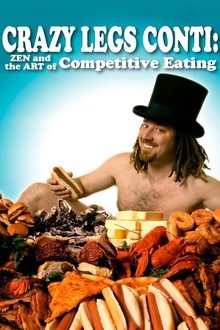
Crazy Legs Conti: Zen and the Art of Competitive Eating (2004)
Crazy Legs Conti is an eccentric New York window washer, nude model and sperm donor, and huge fan of the annual July 4th hot dog eating competition. When he casually breaks the world oyster eating record in New Orleans, he decides to dedicate himself to fulfilling his lifelong dream of becoming a professional competitive eater.
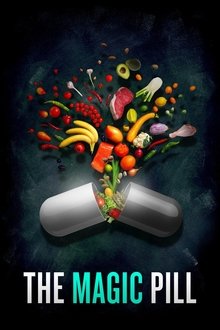
The Magic Pill (2017)
Doctors, scientists and chefs around the globe combat illness with dietary changes, believing fat should be embraced as a source of fuel.
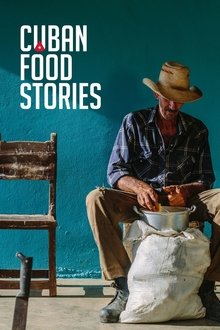
Cuban Food Stories (2018)
After ten years living as an expat in the United States, Asori Soto decides to return to his homeland of Cuba to search for the missing flavors of his childhood. This is a journey to discover culinary traditions long thought lost due to the hardship that Cuba survived after the collapse of the Soviet Union.
